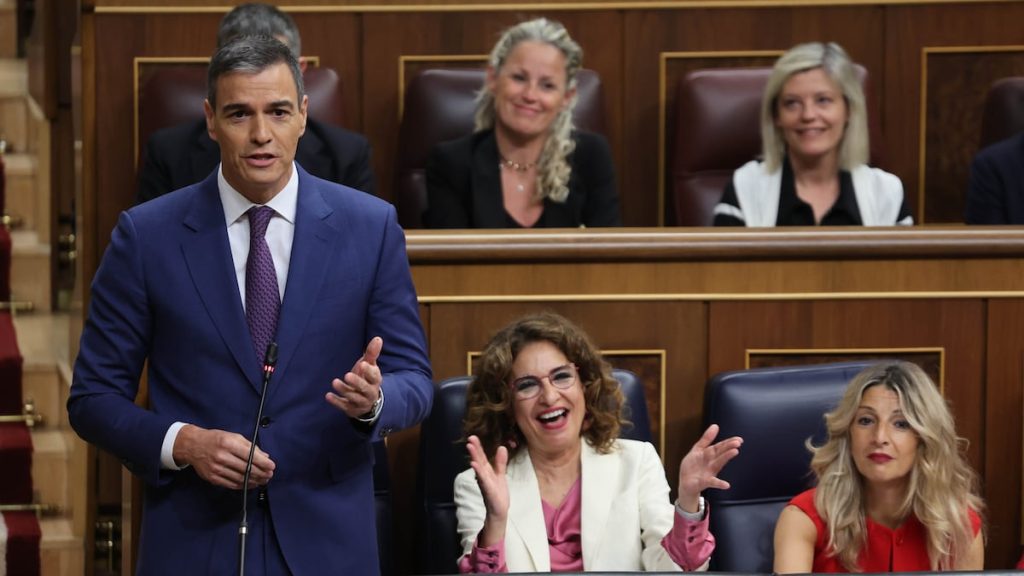Pedro Sánchez, the President of the Spanish Government, is determined to resolve the deadlock in appointing relevant judges to the Supreme Court and other crucial judicial bodies before the summer. After the European elections, Sánchez issued an ultimatum to the opposition party, the Popular Party (PP), on a TV interview stating that if there is no agreement reached by the end of June to renew the composition of the General Council of the Judiciary (CGPJ), which has been expired for over five years, his government will push for a legal reform to unblock the situation. The Minister of Justice, Félix Bolaños, who is recovering from an appendicitis operation, has proposed to restart negotiations with the PP on Friday to resolve the issue. Sánchez hinted at a possible solution known as the Guilarte solution, where judges of the Supreme Court would be chosen based on merits and objective criteria rather than by the CGPJ, which could facilitate the renewal process.
Sánchez emphasized that the prolonged deadlock in the judiciary must come to an end and issued a deadline for the PP to reach an agreement by the end of June. If no resolution is reached, the government will propose a solution to unblock the situation regarding the Judiciary Council. Sánchez also mentioned the possibility of adjusting the selection process for Supreme Court judges to make it more objective, transparent, and less politically influenced. The PP responded by rejecting Sánchez’s ultimatum and indicating that they will not negotiate under pressure. They insist on changing the system of selecting judiciary members or they will not agree to the renewal process. The PP believes that Sánchez is attempting to divert attention from recent electoral defeats and legislative setbacks by focusing on the judiciary issue.
Sánchez also announced that the government will present a package of measures for democratic regeneration in July, including the transposition of a European directive on media transparency and funding. He highlighted the need to combat fake news and improve transparency in media outlets, mentioning the possibility of restricting public funding for media that systematically disseminate false information. Sánchez stressed the importance of defending truth in media communication and enhancing government and congressional transparency and accountability. The proposed measures aim to align with EU regulations and address challenges in media freedom.
Sánchez criticized digital tabloids that spread misinformation about his family members and urged for greater accountability in media reporting. He linked the poor electoral performance of the PSOE in Madrid to the negative media coverage orchestrated by certain outlets. Sánchez condemned the manipulation of information and the targeting of his family members, emphasizing the need for responsible journalism. He expressed concern for the impact of false narratives on his family’s reputation and called for a reflection on the ethical standards in media reporting. The President highlighted the need to address issues related to the spread of misinformation and unethical practices in media communication.


